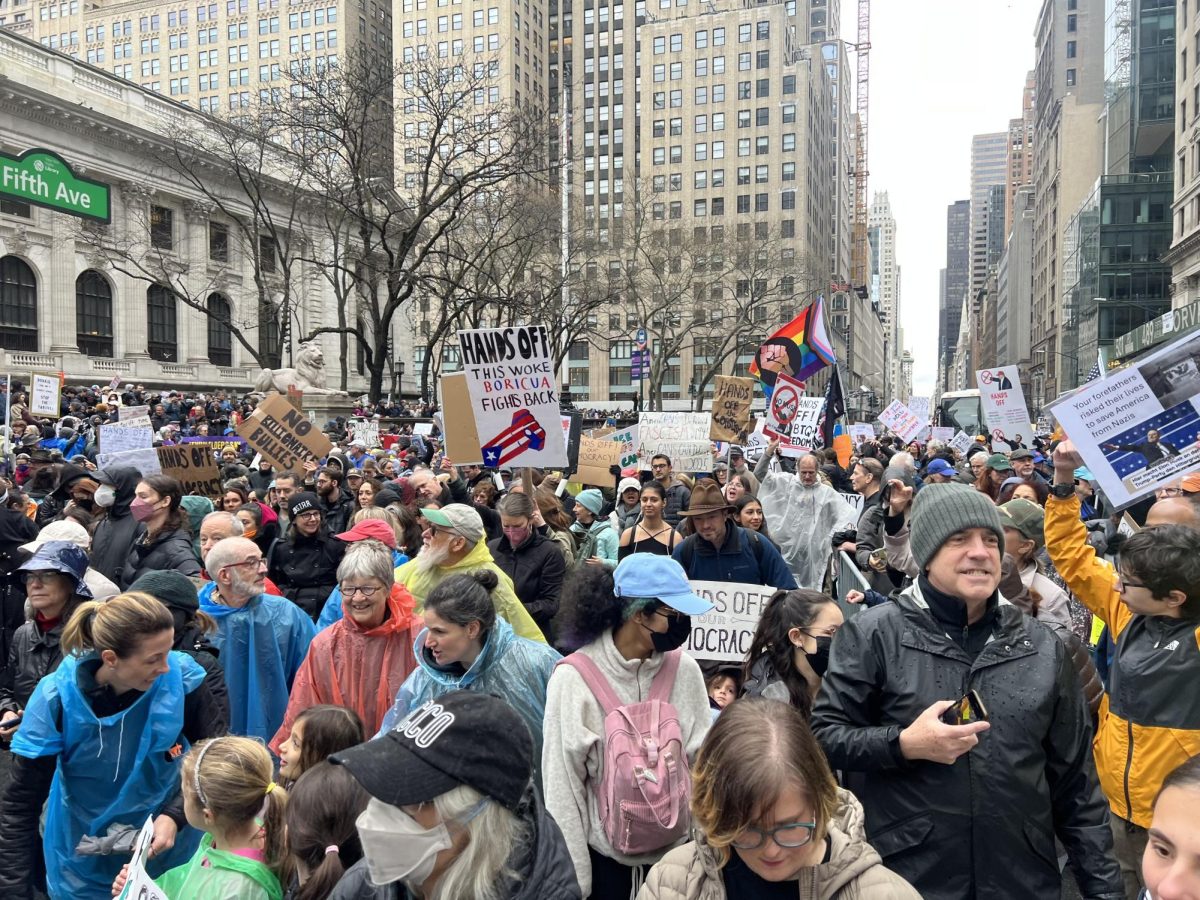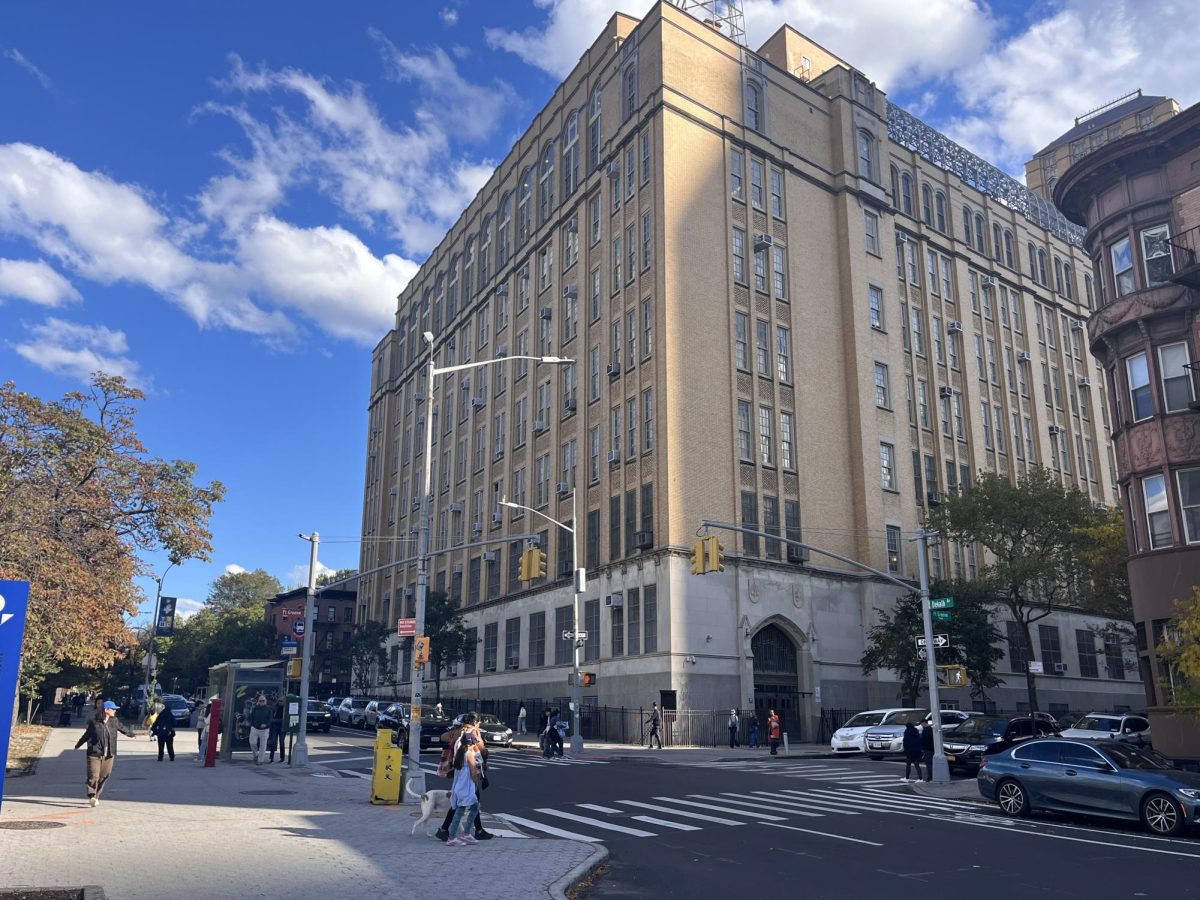Lack of Sleep and Bad Performances
Sleep is one of the most important elements that influences academic performance in school. In a school as rigorous as Brooklyn Tech, students have become accustomed to running on caffeine, taking naps during class, and struggling to stay awake. With the stress of extracurriculars piled on top of school work, students are overwhelmed by exhaustion, negatively impacting how well they perform at school.
“Due to my irregular and unhealthy sleeping schedule, I have almost fallen asleep in lecture-style classes. At the instant that my eyelids shut, an internal war starts to happen between my brain that is screaming ‘DON’T’ and my heart that is arguing ‘You only got 4 hours of sleep, so it’s justified.’ Usually, it’s my brain that wins and I’ll try to keep myself busy to stay awake and process the information presented,” Ying Lin Zhao (’22) said. In a poll recently conducted by The Survey, 30.2% of students responded that they often fall asleep in class.
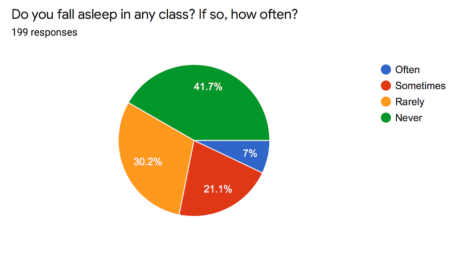
Additionally, 82.8% of students reported that they receive 7 hours of sleep or less; the recommended number of hours of sleep for teens is 8-10 hours according to CDC.
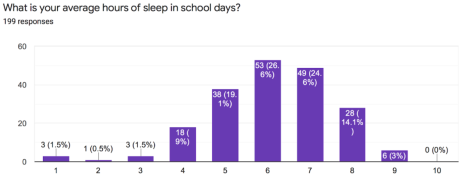
Despite the common idea that students can catch up on sleep during the weekends, Zhao noted, “I generally work during the weekends and [write] my scholarship essays, thus without much resting time compared to the weekdays. ‘Monday me’ can actually be less energetic than the other days.”
When asked how much energy students have on Mondays on a scale of 1 (having no energy at all) to 10 (being extremely energetic), 22.1% chose level 4, 17.6% chose level 3, and 16.1% chose level 1.
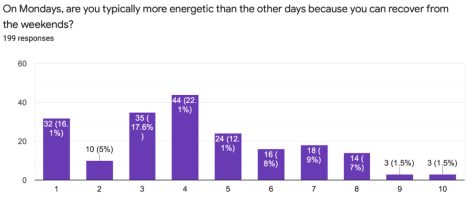
Students have also indicated that their sleep cycle is negatively affected if their schedules have different start times for different days of the week: “I do think my starting time has influenced my sleep schedule negatively because my schedule alternates. If I have a double period for my major classes I have a 1-10. When I don’t have it, it’s a 4-10,” Upama Hasan (‘22) explained. With a demanding workload exacerbating sleep deprivation, it is less likely students will finish their work on time and remain focused.
“There can be other stresses, especially with COVID-19. I think a lot of students’ families have had some difficulties, whether there’s financial difficulty, or whether people were sick… There’s even stress with the trains in getting to school late or taking a long time for that,” Calculus teacher Dr. Blozy noted. “I think it gets spread out, and thus students go to bed later, and they get tired, and then they get more stressed, and they are trying to do homework when they are tired — it’s a bad cycle. And, I think a lot of Brooklyn Tech students get into that cycle.”
Results from the poll reflect the idea that students’ performance in school is negatively affected due to workload. 73.9% of respondents said that “the amount of school work” affects the amount of sleep they receive each night. 44.2% chose “entertainment” and 32.2% chose “stress.”
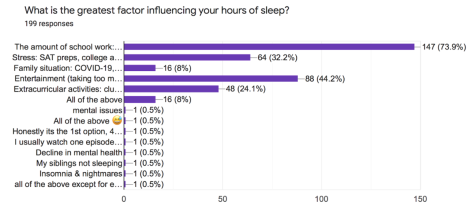
Improvement regarding the amount of sleep that students at Tech receive is incredibly important. As Zhao expressed, “For assignment deadlines that are usually set to 11:59pm, they can be moved to an earlier time to better motivate those who are procrastinating to complete their work earlier. In addition, for classes that assign homework frequently— more than three times a week— teachers should try to make it plausible to complete in 30 minutes, for if each class gives an hour worth of homework, it adds up. Although some may argue that not every class gives homework, those three, four classes that do give homework can still accumulate.”
Tech students and administration should cooperate to devise solutions that prioritize teenagers’ sleep, balancing Tech’s heavy academic workload and fostering a healthier school environment.

